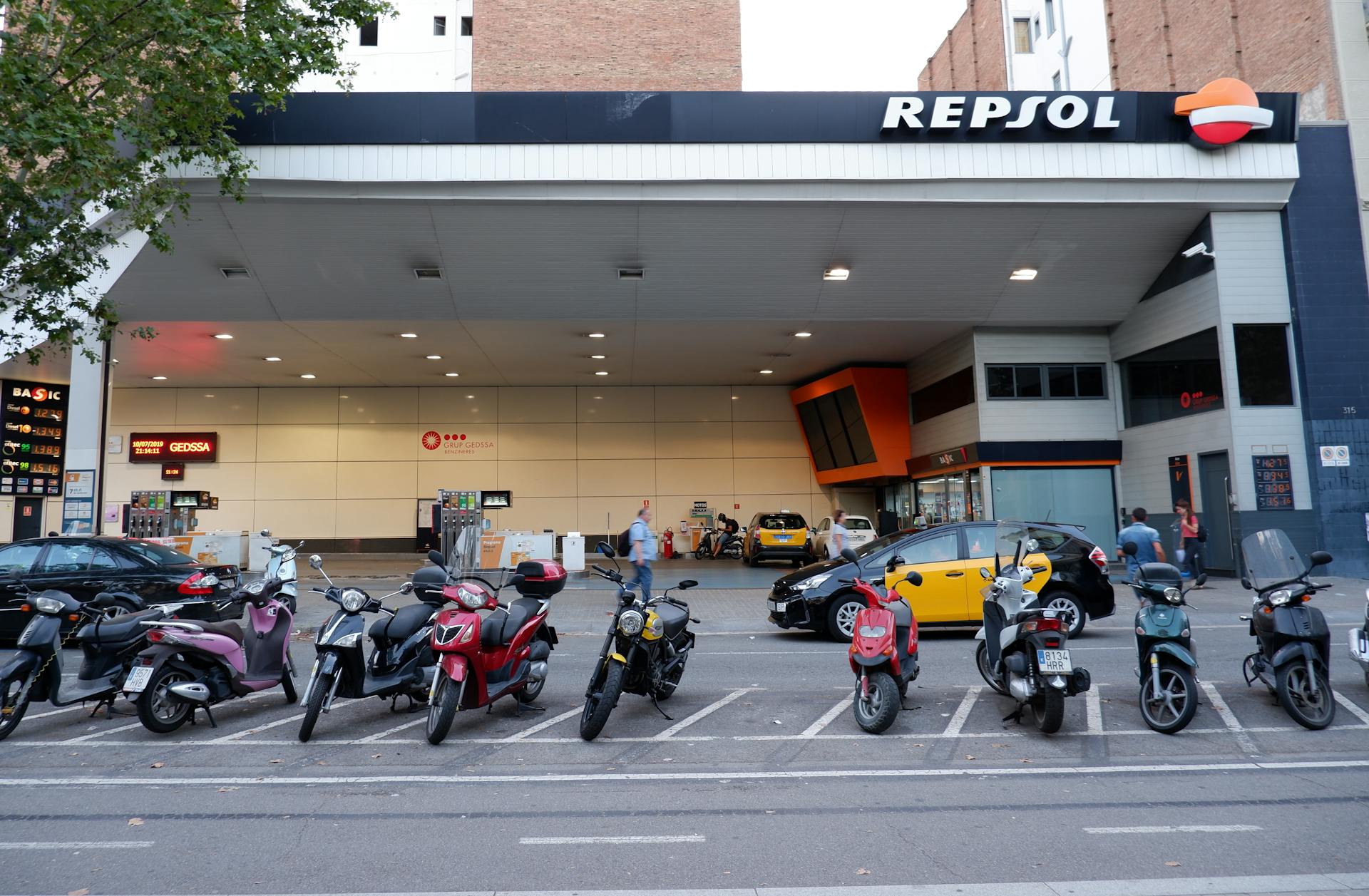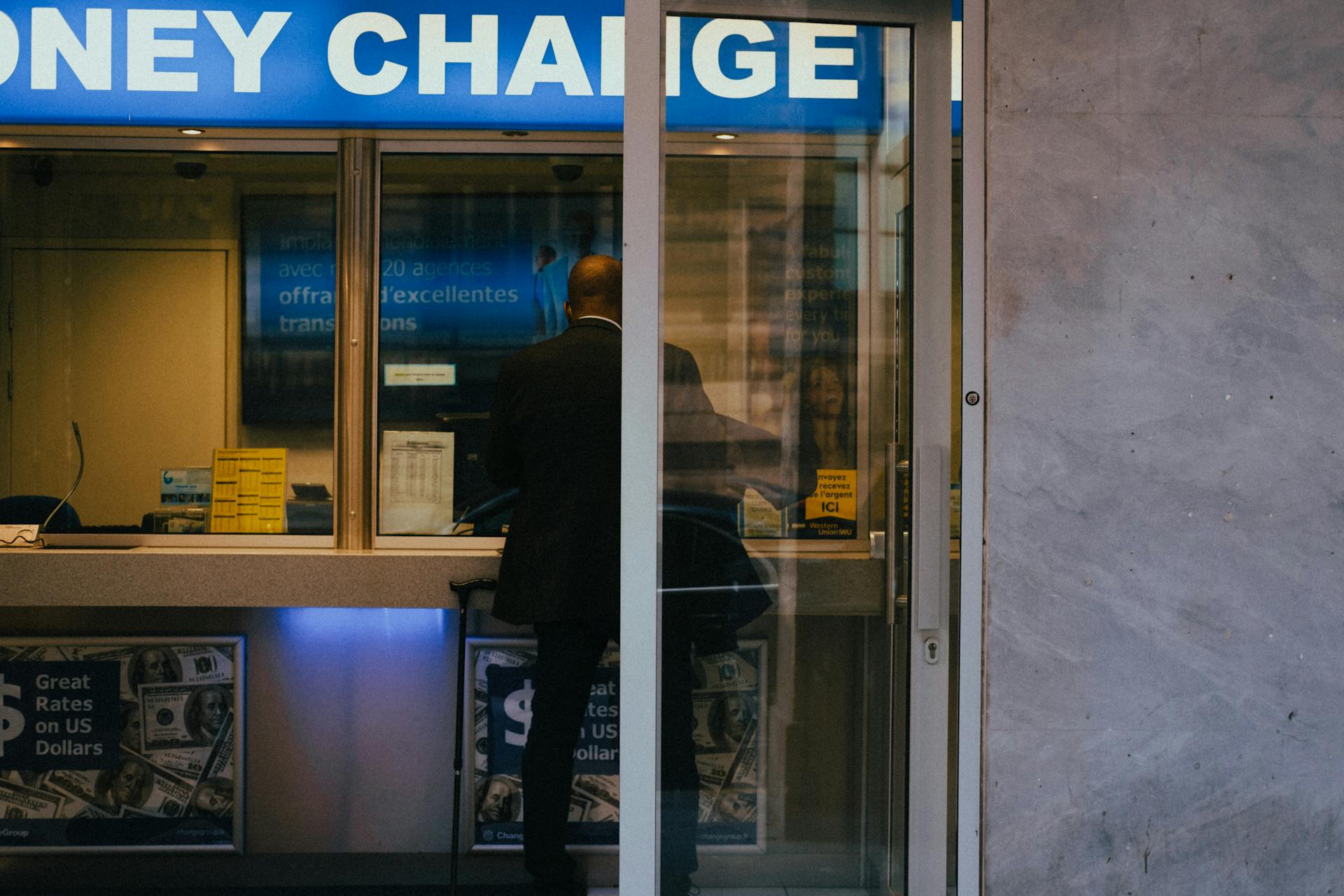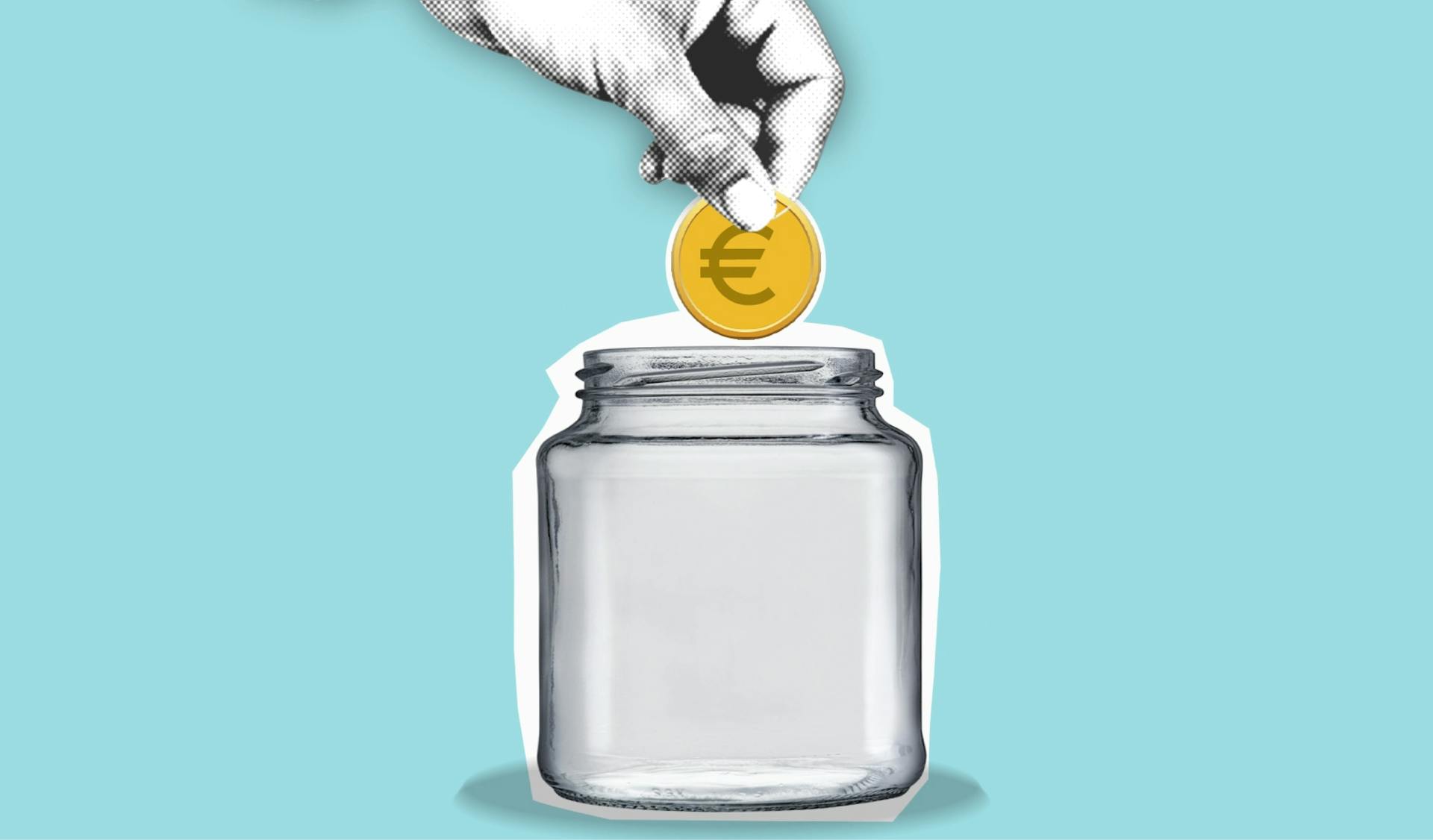
Barcelona is a shopper's paradise, and you'll want to have the right currency to make the most of your trip. The official currency of Spain is the Euro (€).
You can exchange your money for Euros at a currency exchange office or a bank, but be aware that the rates may not be the best. Credit cards are widely accepted in Barcelona, making it easy to make purchases and pay for services.
If you're planning to use your credit card, it's a good idea to inform your bank of your travel plans, so they don't flag your transactions as suspicious. This will also help prevent your card from being declined.
For more insights, see: Barcelona Currency Exchange Rate
Currency in Spain
Spain uses the euro, and it's been a member of the Eurozone since 1999.
You can exchange currency in Spain, but it's generally not a good idea to use street vendors, as it's illegal and likely to be a rip-off.
If you need cash upon arrival, only exchange a small amount at the airport, as the exchange rates are likely to be poorer than in the rest of the town.
It's usually best to exchange a bulk of your cash elsewhere, such as a bank or a dedicated currency exchange service.
Banks in Spain are often closed on weekends and holidays, and may even close their doors as early as 14:30 on weekdays.
To avoid hidden fees, make sure you understand the mid market rate and compare it with the rate you're offered.
Even if an exchange claims 'Zero Commission', they'll make a profit somewhere, so be sure to read the fine print.
To ensure a smooth exchange, try to keep some crisp, clean banknotes for changing, as some services may refuse damaged or torn currency.
Expand your knowledge: Thailand Currency Exchange from Payoneer
Payment Methods
In Barcelona, credit and debit cards are widely accepted in large towns and tourist areas. You can use them for purchases both big and small, making it easy to pay by card in most situations.
However, it's worth noting that some smaller cities and independent retailers might not accept card payments, so it's a good idea to keep some cash on hand. A small amount of euros should cover you in case you need it.
Be aware that some banks may add a premium to cover the costs of your spending abroad, usually around 1 to 3% of the transaction. This is a small price to pay for the convenience and security of using a card while traveling.
If you're asked to pay in your home currency, always opt to pay in the local currency - euros - instead. This will help you avoid hidden fees and poor exchange rates.
Here are some tips for using credit and debit cards in Barcelona:
- Be aware of fees: Make sure to ask your bank about their international transaction fees, which may add an additional 2-3% onto the cost of your purchase.
- Cash Advances: Credit card cash advances can be very expensive and should only be used as a last resort, as interest rates normally begin to accrue from the date on which the money is withdrawn.
Payment Cards in Spain
Payment cards are widely accepted in Spain, especially in large towns and tourist areas. You can use your credit or debit card for purchases, but be aware that some smaller independent retailers may not accept card payments.
If you're planning to use your card abroad, let your bank know in advance to avoid any issues with their anti-fraud technology. Some banks may block your card if they suspect suspicious activity, so it's best to inform them of your travel plans.
Credit cards are convenient for large purchases, but be aware of the fees your bank may charge for international transactions. These fees can range from 1 to 3% of the transaction amount.
You may be asked by the waiter or shop assistant if you want to be charged in your home currency, which is called Dynamic Currency Conversion (DCC). Always opt to pay in the local currency, euros, to avoid hidden fees and poor exchange rates.
If you need cash, you can withdraw euros from an ATM, but be aware of the DCC scam and always select to be charged in local currency. This will help you avoid being ripped off by a foreign bank's poor exchange rate.
Here are some key things to keep in mind when using credit cards in Spain:
- Credit cards are widely accepted in large towns and tourist areas.
- Some smaller independent retailers may not accept card payments.
- Be aware of fees charged by your bank for international transactions.
- Opt to pay in local currency, euros, to avoid hidden fees and poor exchange rates.
- Be aware of the DCC scam and always select to be charged in local currency.
In Barcelona, credit and debit cards can be used for purchases both large and small, making it easy to pay by card in most situations. However, some places may request a 4-digit pin number, which may not work with US cards unless they have a chip.
Do Australian Dollars Get Accepted?
Australian Dollars are widely accepted by currency exchanges in Barcelona, especially for major currencies like the ones you'd typically use for travel money purchases.
Most in-person currency exchanges will buy and sell Australian Dollars, giving you a hassle-free experience when exchanging your money.
Consider using a Wise travel card for extra peace of mind, as it offers competitive exchange rates and lower fees compared to traditional currency exchange shops.
Additional reading: Aussie Money
Getting Money
To get money in Barcelona, Spain, you can use ATMs, which are widely available and can be found even in remote areas. Banks in Barcelona, especially those along Passeig de Gracia, will exchange dollars for euros.
You can withdraw larger amounts less frequently to minimize fees, and make sure your ATM card is linked to a checking or money market account, not a savings account.
If you're having trouble finding an ATM that works with your card, ask your home financial institution for the location of a machine that functions on your network.
For another approach, see: Atm Machines in Vietnam
Atms in Spain
ATMs in Spain are plentiful, with an extensive bank network covering even the most remote villages. You can use the Visa ATM locator, MasterCard ATM locator, or Amex ATM locator to find an ATM near you.
To avoid being ripped off by a foreign bank's poor exchange rate, always select to be charged in local currency when withdrawing from an ATM. This way, you'll get a fair exchange rate.
Banks in Spain have normal banking hours from Monday to Friday, 9am-2pm, and are closed on weekends and national holidays. If you need to exchange dollars for euros, you can visit a bank in Barcelona, especially those along Passeig de Gracia.
Using ATMs in Spain may come with additional fees from your home bank, usually around 2-3% for international withdrawals and a set fee for using ATMs not affiliated with your bank. Check with your bank for details on these fees and withdrawal limits.
To minimize the fees, you can withdraw larger amounts less frequently, and make sure that the ATM card you use is linked to a checking or money market account, not a savings account.
Curious to learn more? Check out: Currency Use in Brazil
Getting Money
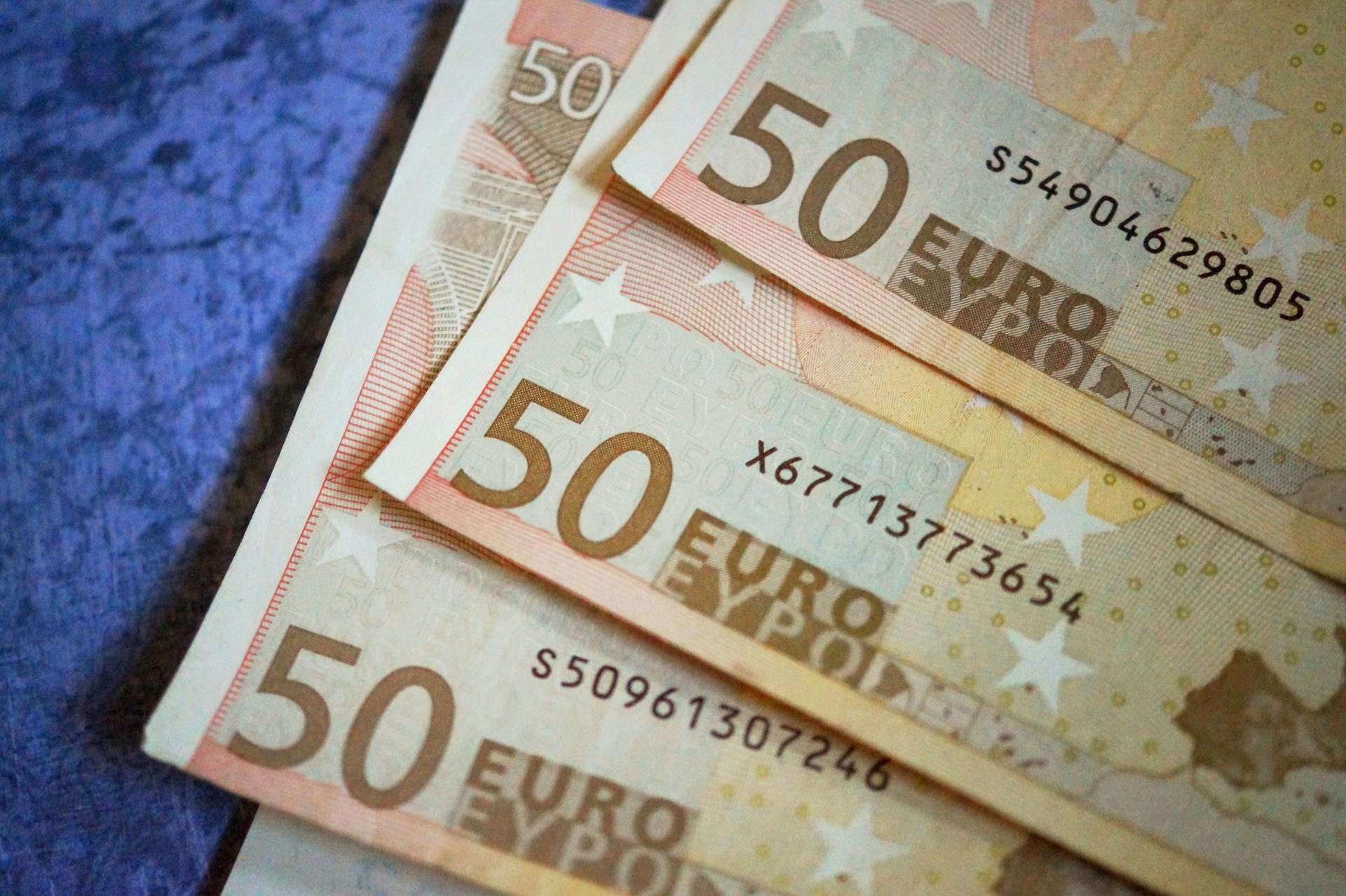
Getting money in Barcelona can be a bit tricky, but with the right knowledge, you'll be all set. The first thing to avoid is exchanging money at the airport, as the rates are usually poor and the fees are high.
You can exchange money at a commercial bank with an international presence, as they often get a better rate than smaller banks. However, be aware that banks in Barcelona are closed on weekends and national holidays, and may even close early on weekdays.
If you need to exchange a large amount of cash, it's best to do it at a bank or a dedicated currency exchange service. Some popular options include Quickgold Barcelona, RAFER CHANGE, and GOLD STREET.
To minimize fees, it's a good idea to withdraw larger amounts less frequently, and make sure that the ATM card you use is linked to a checking or money market account, not a savings account. This can help you avoid additional fees from your home bank.
You might like: B H P Billiton Share Price
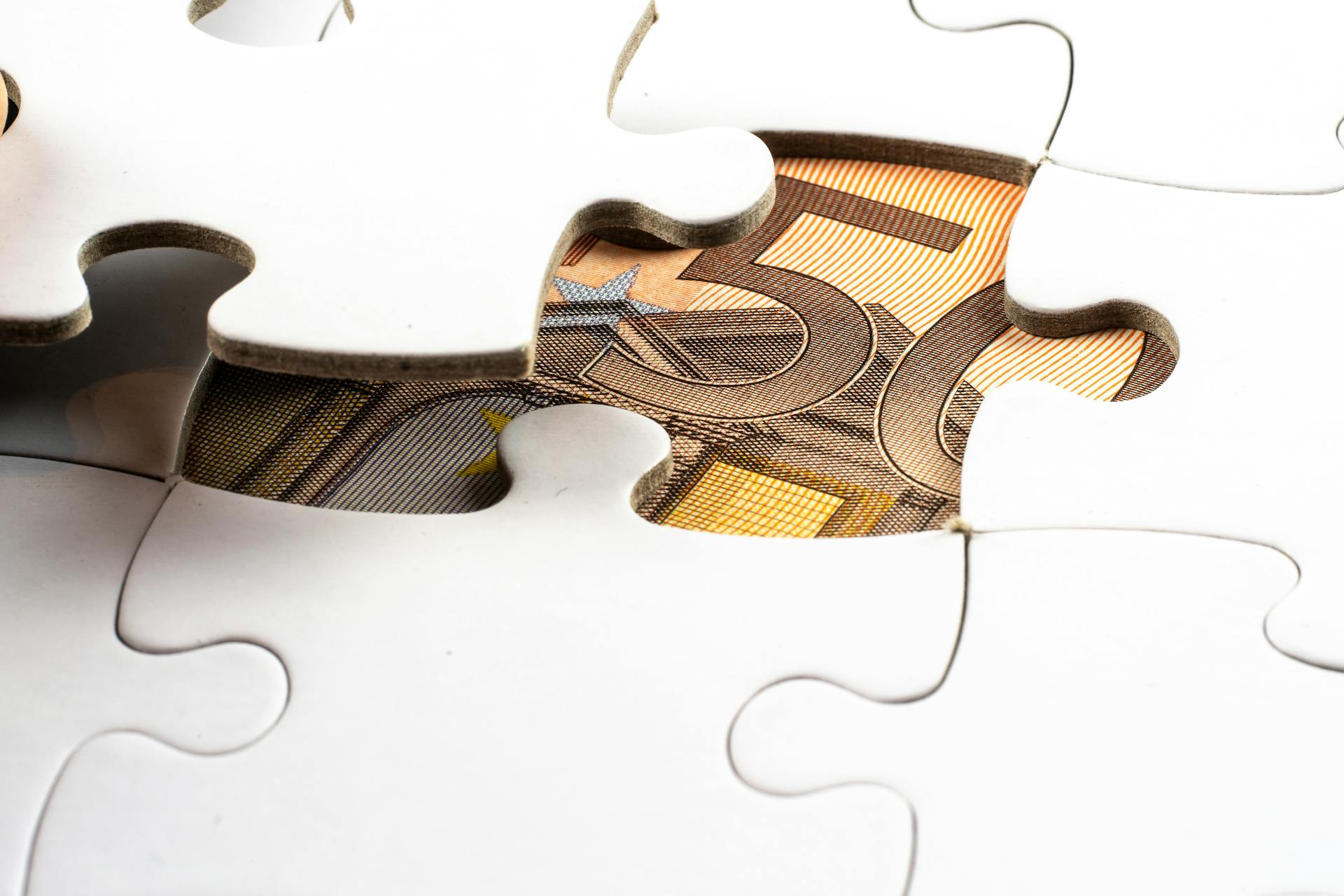
Here are some popular banks in Barcelona that can exchange dollars for euros:
Keep in mind that some ATMs in Spain may charge higher fees, so it's essential to be aware of these fees and withdrawal limits before using your card. You can also ask your home financial institution for the location of a machine that functions on your network.
To stay safe while using ATMs, use machines that are attached to banks and are located in well-lit, familiar locations. Be aware of your surroundings when entering your PIN or withdrawing cash, and avoid using ATMs that are not attached to a bank.
Consider reading: Avoid Overdraft Fees
Frequently Asked Questions
Should I carry cash in Barcelona?
Carrying cash in Barcelona is recommended, especially for small purchases and tips, but using a combination of cash and cards is ideal.
Sources
Featured Images: pexels.com

